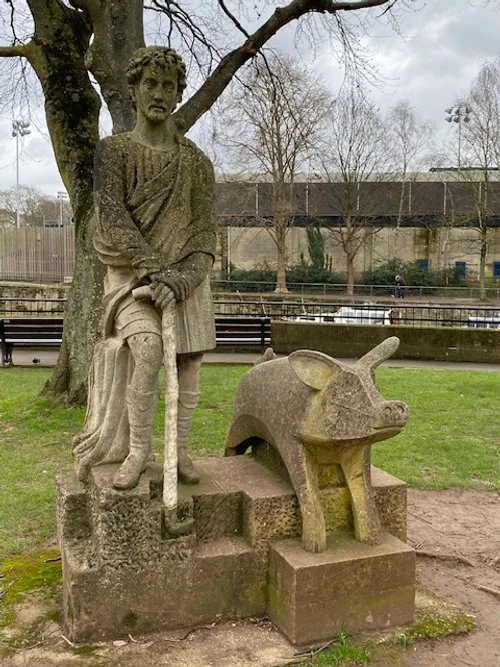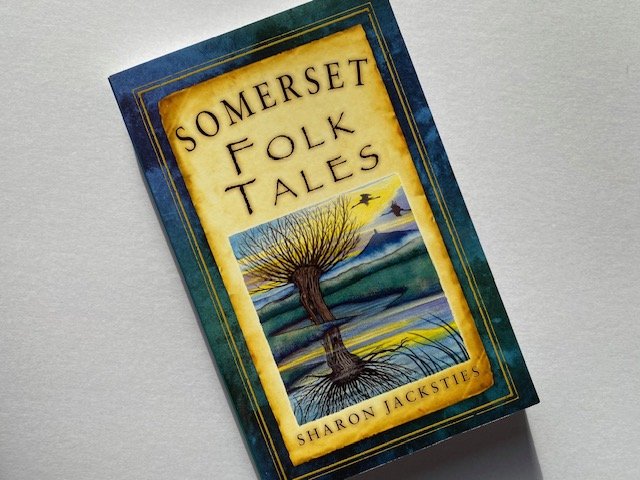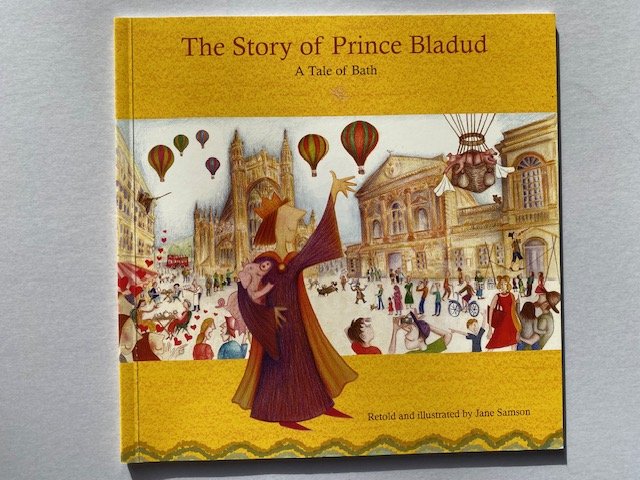Bath: the prince and the pigs
Bath is well known for its hot springs, Roman baths and Regency splendour, but in a corner of Parade Gardens, there is a statue which hints at the legend which tells how this city was founded.
Parade Gardens is a lovely spot to have a wander, eat a picnic and enjoy views of the River Avon, with Pulteney Bridge and the Weir, to one side and the busy streets of Bath above to the other. A life-size stone statue of a man with a pig beside him stands here, one of three statues to the memory of Prince Bladud, who, according to legend, founded the city of Bath.
The son and heir of King Lud of the ancient Britons, Prince Bladud studied in Athens and on returning home, found he had contracted leprosy. Banished from his kingdom, his mother gave him a ring as a token to prove his identity should he ever need it. Wandering the countryside in desperate need, Bladud begged a farmer to allow him to be a swineherd. The farmer agreed and Bladud took charge of his pigs. Soon, however, to his horror, Bladud noticed the pigs had developed the same terrible condition as he himself had and so took the pigs deep into the forest to hide the truth from the farmer.
The pigs found a muddy, smelly spot in which to wallow and Bladud could feel warmth rising from the ground where they were bathing in the mud. To his amazement, a few days later, he saw that the pigs’ skin condition was improving and decided to test the cure for himself.
He returned to the court and presented the ring to his mother. Restored to his position, he went on to become the ninth king of the Britons (and the father of King Lear!), founding the city of Bath in 836 BCE. Officially, of course, the Romans founded the city, calling it Aquae Sulis; however, Bladud is referred to in a number of historical texts, and features on several old coins, one of which is inscribed: ‘Bladud Founded Bath’.
This statue of the prince dates from 1859 and after being kept in storage for many years, was renovated and moved to the gardens in 2009. The statue of a pig, carved from Bath stone, was added at that time and in 2008, a public art event known as King Bladud's Pigs in Bath was held to celebrate Bath, its origins and its artists.
There are two other places in which you can see Bladud in Bath today- an eighteenth century stone relief in the Cross Bath at Thermae Bath Spa and the oldest statue of King Bladud, which dates back to at least 1699, at the Roman Baths. You can also visit the Bladud’s Head pub in Larkhall, which apparently has a new sign – featuring the mythical king!
You can read more about this legend in ‘Somerset Folk Tales’ by Sharon Jacksties who has also written a child-friendly version of this book entitled ‘Somerset Folk Tales for Children’. There is also a picture book called The Pig Prince: The Story of King Bladud of Bath by Ruth Patterson, perfect for introducing this story to younger children.





